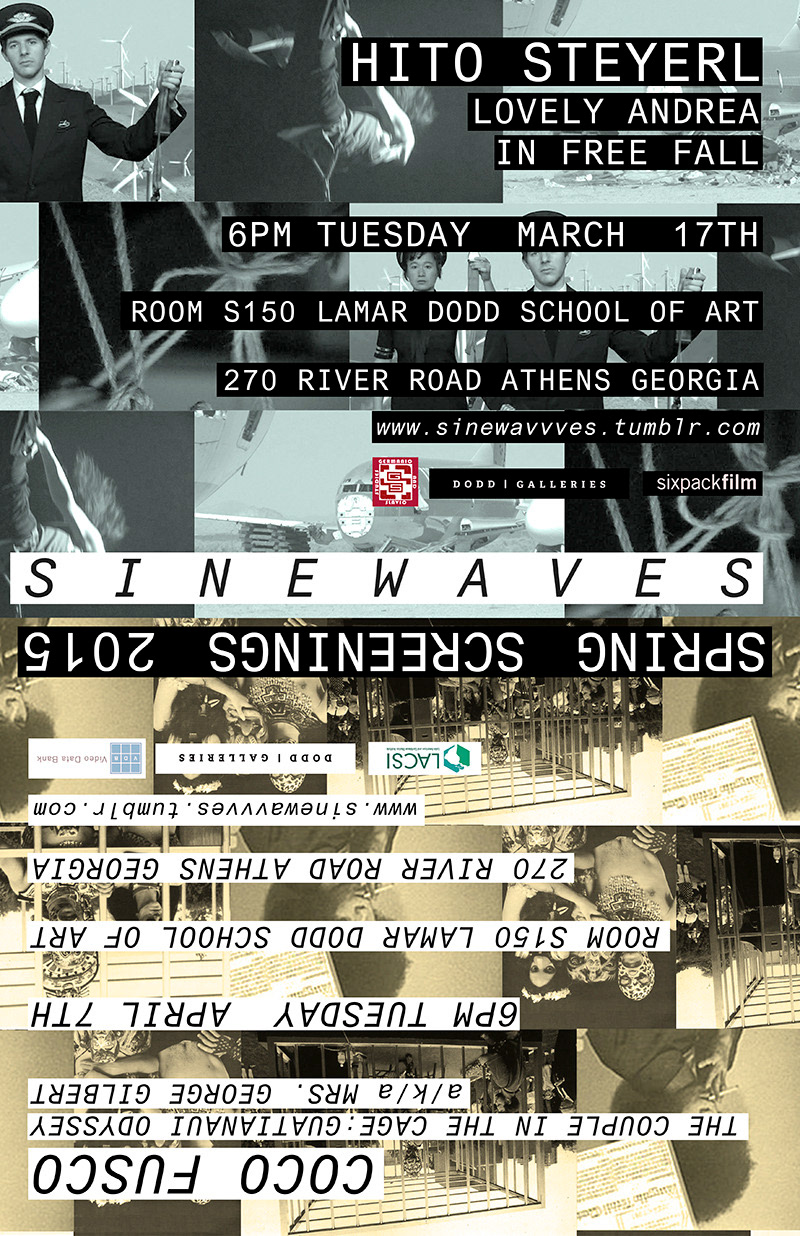
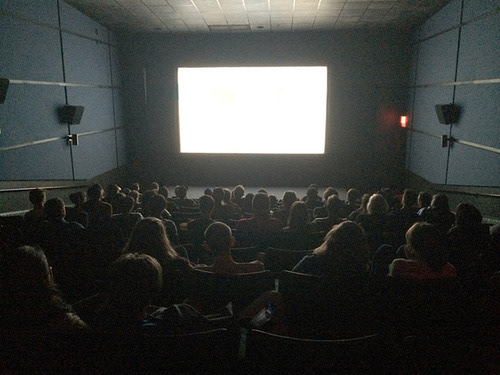
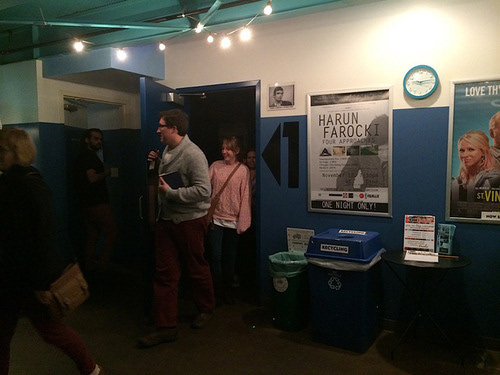
SineWaves was a year long video art screening series sponsored by the Lamar Dodd School of Art, The Department of Germanic & Slavic Studies, and The Latin American and Caribbean Studies Institute at the University of Georgia. I curated three different screenings at the Cine Movie Theater, featuring work by influential video artists, as a way to expand upon course curriculum and foster interdepartmental academic discussions.
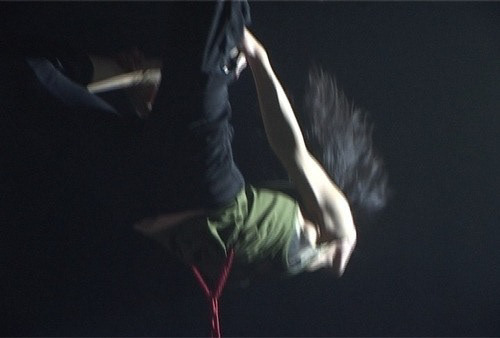
Lovely Andrea © Hito Steyerl, courtesy Six Pack Film
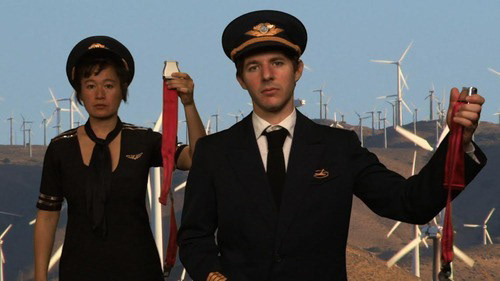
In Free Fall © Hito Steyerl, courtesy Six Pack Film
Hito Steyerl Screening
SineWaves in conjunction with the Lamar Dodd School of Art and The Department of Germanic & Slavic Studies present two videos by Hito Steyerl, including "In Free Fall" (2010) and "Lovely Andrea" (2007). Both videos chart the lifecycle of objects through space and time in line with Sergej Tretjakov’s concept of the “biography of the object” from 1929. “In Free Fall” is at once a biography of the Boeing 707-700 4X-JYI airplane used in the film "Speed" (2004) and a commentary of the economic global collapse of the early 2000s. Steyerl visits an airplane graveyard that provides movie props for films and aluminum scrap metal for the creation of optical discs. Commissioned for Documenta 12, “Lovely Andrea,” comments on feminist politics around the Japanese pornography industry, as Steyerl tracks down a photograph taken of herself in the nawa-shibari style in Tokyo in 1987.
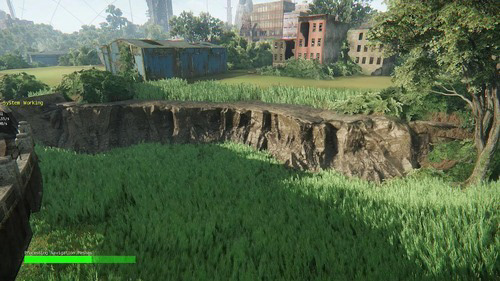
Parallel II (2014) © Harun Farocki, Courtesy of Video Data Bank
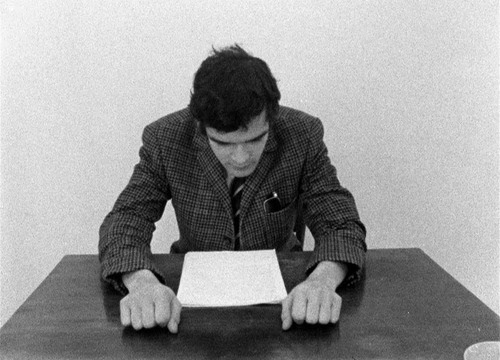
Inextinguishable Fire (1969) © Harun Farocki, Courtesy of Video Data Bank
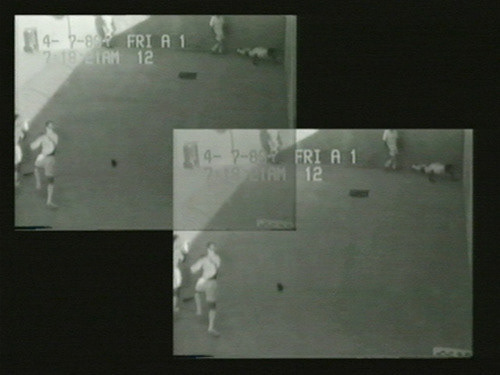
I Thought I Was Seeing Convicts (2000) © Harun Farocki, Courtesy of Video Data Bank
Harun Farocki Screening
Harun Farocki has been called “the best-known unknown German Filmmaker” and has often been compared to experimental filmmakers Chris Marker and Jean-Luc Godard. Over the last 50 years, Farocki has made over 100 films and videos for both the cinema and gallery installation. His work explores a wide-range of important sociopolitical issues, such as war, labor, technology, industry, and capitalism. His work, over time, has taken a critical stance on the way image-making technologies impact historically disempowered members of society.
The Los Angeles Times describes Farocki as “one of the most challenging, speculative, and distinctive filmmakers ever to confront an audience.”
This screening program below reflects Farocki’s remarkable variety of subjects and myriad of approaches, using re-enactments, direct cinema, surveillance, and computer generated imagery.
Screening Program:
"Inextinguishable Fire" (1969) features imagined re-enactments of a Dow Chemical promotional film and the manufacturing of napalm.
"An Image" (1983) uses a direct cinema approach to examine a Playboy Magazine centerfold shoot.
"I Thought I Was Seeing Convicts" (2000) juxtaposes surveillance footage taken from a maximum-security prison and a shopping mall.
"Parallel II" (2014) explores the digital boundaries of well-known video games, from Minecraft to Red Dead Redemption.
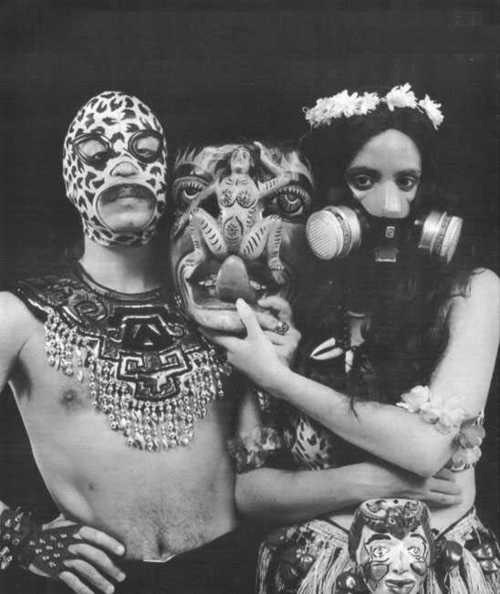
Fusco and Gómez-Peña, The Year of the White Bear, 1992. Photo: Glenn Halvorsen
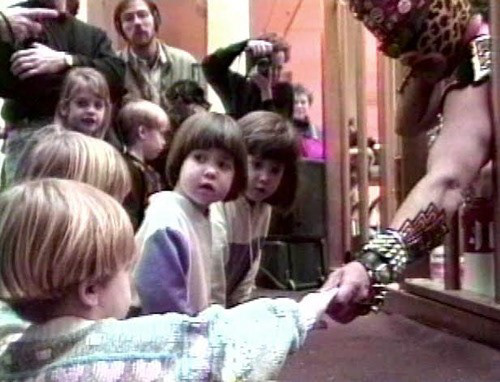
The Couple in the Cage ©Coco Fusco, Courtesy of Video Data Bank
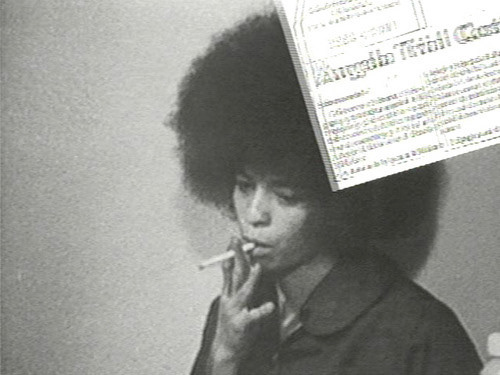
a/k/a Mrs. George Gilbert ©Coco Fusco, Courtesy of Video Data Bank
Coco Fusco
SineWaves in collaboration with the Lamar Dodd School of Art and The Latin American and Caribbean Studies Institute are excited to present two critically acclaimed videos by Cuban-American artist Coco Fusco. For over 20 years, Fusco has examined issues of cultural otherness, stereotyping, and racial politics through modes of performance and video. Perhaps her most seminal work, "The Couple in the Cage: Guatianaui Odyssey" (1993), documents a year-long traveling performance by Coco Fusco and Guillermo Gómez-Peña, who perform as caged indigenous people from an imaginary island. Their satirical performance harkens back to the anthropological tradition of human beings being exhibited in zoos and museums, yet remains relevant to intercultural relations today. In "a/k/a Mrs. George Gilbert" (2004), Fusco combines fictional and documentary source materials to reflect on the famous 1970 trial: The State of California vs. Angela Davis. UCLA Professor and Black Panther Party affiliate Angela Davis was wrongfully accused of conspiring in the armed take over of a California courtroom. Davis went underground and was added to the FBI’s Most Wanted List. In the months leading up to her arrest, law enforcement officials misidentified hundreds of African-American women as Davis. Davis’s case raised global conversations around racial profiling and government targeting of black intellectuals in the United States.
Coco Fusco was born in New York in 1960. Fusco is an interdisciplinary artist and writer and holds her M.A. in Modern Thought and Literature from Stanford University and her Ph.D. in Art & Visual Culture from Middlesex University. She is winner of the prestigious 2003 Herb Alpert Award and is currently The Martin Luther King visiting scholar at the M.I.T..